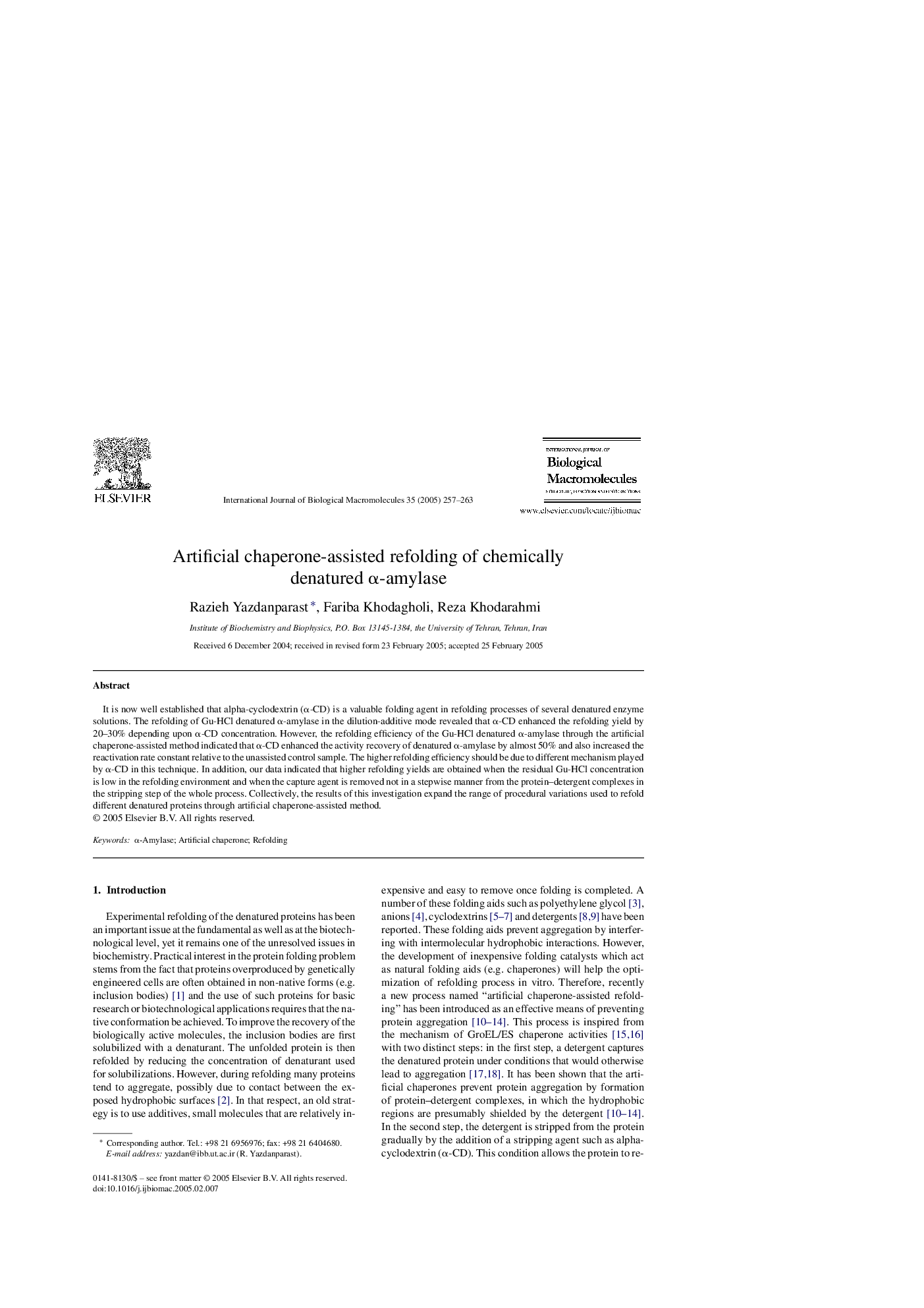| Article ID | Journal | Published Year | Pages | File Type |
|---|---|---|---|---|
| 9890918 | International Journal of Biological Macromolecules | 2005 | 7 Pages |
Abstract
It is now well established that alpha-cyclodextrin (α-CD) is a valuable folding agent in refolding processes of several denatured enzyme solutions. The refolding of Gu-HCl denatured α-amylase in the dilution-additive mode revealed that α-CD enhanced the refolding yield by 20-30% depending upon α-CD concentration. However, the refolding efficiency of the Gu-HCl denatured α-amylase through the artificial chaperone-assisted method indicated that α-CD enhanced the activity recovery of denatured α-amylase by almost 50% and also increased the reactivation rate constant relative to the unassisted control sample. The higher refolding efficiency should be due to different mechanism played by α-CD in this technique. In addition, our data indicated that higher refolding yields are obtained when the residual Gu-HCl concentration is low in the refolding environment and when the capture agent is removed not in a stepwise manner from the protein-detergent complexes in the stripping step of the whole process. Collectively, the results of this investigation expand the range of procedural variations used to refold different denatured proteins through artificial chaperone-assisted method.
Related Topics
Life Sciences
Biochemistry, Genetics and Molecular Biology
Biochemistry
Authors
Razieh Yazdanparast, Fariba Khodagholi, Reza Khodarahmi,
